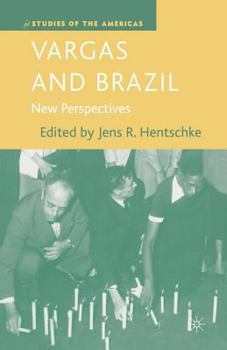Vargas and Brazil: New Perspectives
Select Format
Select Condition 
Book Overview
This volume unites scholars from Brazil, the U.S. and Europe, who draw on a close re-reading of the Vargas literature, hitherto unavailable or unused sources, and a wide array of methodologies, to shed new light on the political changes and cultural representations of Vargas's regimes, realising why he meant different things to different people.
Format:Paperback
Language:English
ISBN:1349534587
ISBN13:9781349534586
Release Date:February 2007
Publisher:Palgrave MacMillan
Length:306 Pages
Weight:0.83 lbs.
Dimensions:0.7" x 5.5" x 8.5"
Customer Reviews
0 rating





